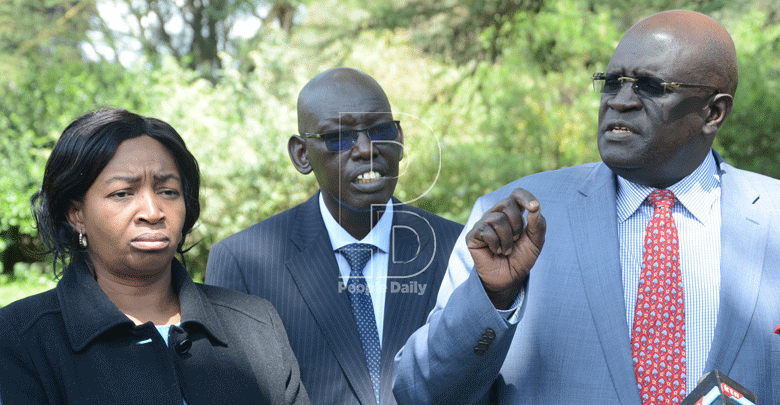University scholars have been urged to take the lead in driving the ongoing education reforms, which will have a direct impact on universities.
Graduates of basic education system under the new Competency-Based Curriculum (CBC) are expected to join universities in 2029. They will be joining through three routes: Talents covering arts and sports, social sciences and science, technology, engineering and mathematics (Stem) courses.
Education Cabinet secretary Prof George Magoha says though the reforms towards CBC have been focused on basic education level and the Technical and Vocational Education and Training (Tvet) sub-sectors as directed by Sessional Paper No. 14 of 2012, it does not mean universities remain static.
Magoha said the Sessional Paper called for enhanced collaborations between industry, professional bodies and academic institutions in determining competencies required of the graduates.
Rollout
He noted that universities are expected to produce graduates with relevant competencies, which can only be achieved through the realignment of the curricula after consultations with industry and professionals on the expected competencies.
“We are rolling out CBC envisaging that the roll-out will continue systematically so as to encapsulate the entire basic education sector by 2028 when the current Grade 3 learners will reach Grade 12 graduate from where they will transit to tertiary education,” Magoha said.
He was addressing a forum at Kenyatta University on the positioning of universities in the new syllabus last week. He said the institutions must undertake reforms towards positioning themselves to meet the needs of graduates.
Magoha said universities need to revise their curricula grounded on relevance, even as questions are raised on whether it is meeting labour market needs.
“A survey on skills mismatch by the Federation of Kenya Employers in 2018 revealed that most university graduates do not have competencies to perform their jobs; industries had to retrain them for three to six months,” he said.
He urged Commission for University Education (CUE) to provide a framework for guiding universities in aligning their curricula to CBC.
Education and Development Consultant, Prof Kabiru Kinyanjui said there is need to orientate universities to new modes of learning and interacting with students.
Secondary specialisations
Kinyanjui said there is need to prepare lecturers to teach students who will have gone through CBC as they join universities in 2028. “This also calls for the need to reform university programmes and degrees in line with the knowledge requirements of a three-year degree,” he said.
Kinyanjui said there is need to understand how senior secondary specialisations and pathways for Grades 10-12 will prepare students for university education degrees in social sciences, Stem and sports.
“There is the changing structure for university education from four to three years, which calls for capacity building of lecturers to teach and guide learning for students who form the CBC system,” he said.
The professor said there is also a need to identify and nurture university experts as champions of CBC reforms to link up basic education changes to university education.
“The champions will be vital communication links between Kenya Institute of Curriculum Development (KICD), Teachers Service Commission (TSC), CUE, the Ministry and universities, to create a culture of change in universities for the anticipated changes,” he said.
The champions are expected to work with senates, faculty heads, lecturers and other university players to formulate Terms of References for detailed curriculum reviews and changes required in various degree programmes.
Other key partnerships, Kinyanjui said, should be in training of assessment professionals in formative and summative methodologies in schools of education, in consultation with Kenya National Examinations Council (Knec).
“Reforms are critical to revitalising universities in service to education systems and the society. They should prepare for implementation of CBC at their level, and supporting its implementation at lower levels of the education system,” he said.










